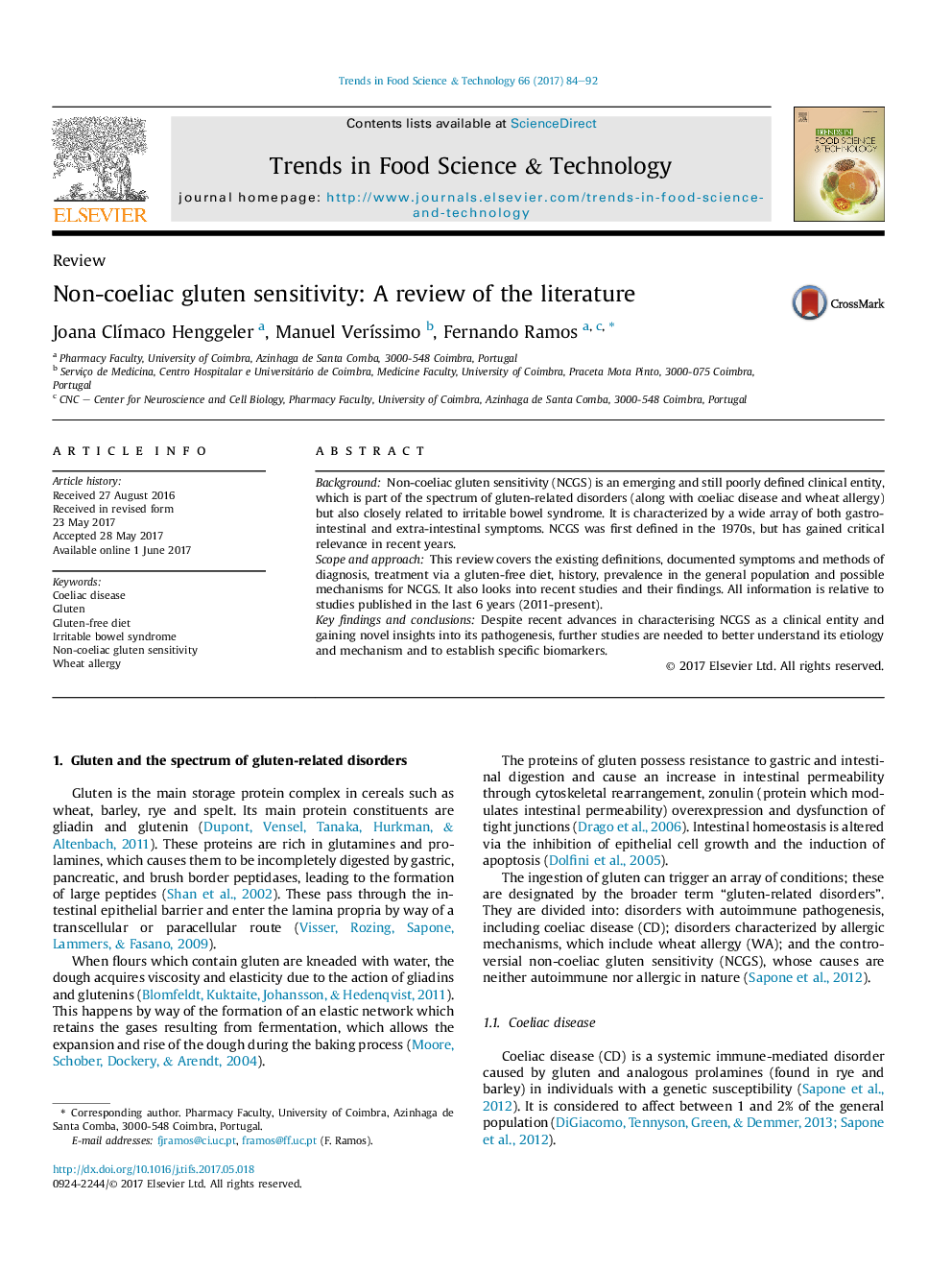| Article ID | Journal | Published Year | Pages | File Type |
|---|---|---|---|---|
| 5523704 | Trends in Food Science & Technology | 2017 | 9 Pages |
â¢Non-coeliac gluten sensitivity is still a very controversial and poorly defined entity.â¢Non-coeliac gluten sensitivity may result from defects in the intestinal barrier leading to systemic immune activation.â¢Non-coeliac gluten sensitivity could be caused by non-gluten components of wheat.â¢Gut dysbiosis could be implicated in non-coeliac gluten sensitivity.
BackgroundNon-coeliac gluten sensitivity (NCGS) is an emerging and still poorly defined clinical entity, which is part of the spectrum of gluten-related disorders (along with coeliac disease and wheat allergy) but also closely related to irritable bowel syndrome. It is characterized by a wide array of both gastrointestinal and extra-intestinal symptoms. NCGS was first defined in the 1970s, but has gained critical relevance in recent years.Scope and approachThis review covers the existing definitions, documented symptoms and methods of diagnosis, treatment via a gluten-free diet, history, prevalence in the general population and possible mechanisms for NCGS. It also looks into recent studies and their findings. All information is relative to studies published in the last 6 years (2011-present).Key findings and conclusionsDespite recent advances in characterising NCGS as a clinical entity and gaining novel insights into its pathogenesis, further studies are needed to better understand its etiology and mechanism and to establish specific biomarkers.
